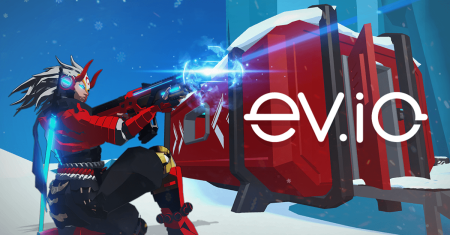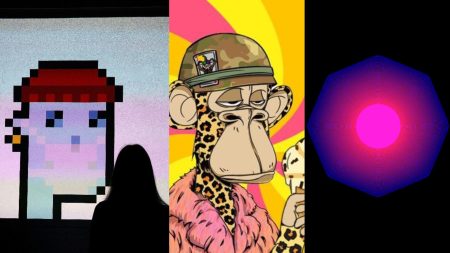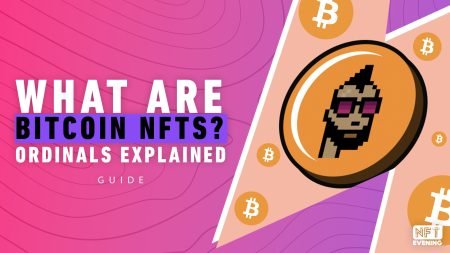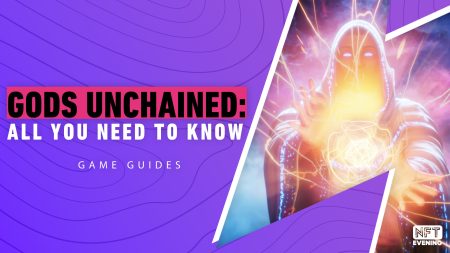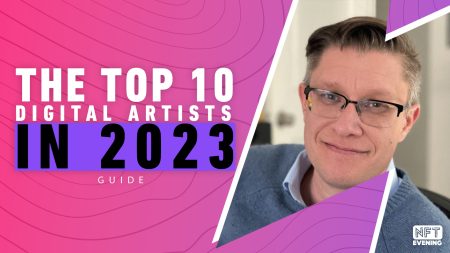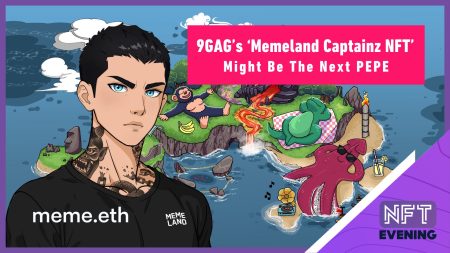The Spells of Genesis holds the record of being the first mobile game that implemented blockchain technology back in 2017. It is the flagship gaming title of video game developers Everdreamsoft and their partner All 4 Games.
The short description of the gameplay is that it marries strategic card gaming and old-school arcade influence. So basically, players collect cards and use them to destroy enemy cards. The video trailer highlights four major pillars of the game: joining epic battles, building an invincible deck, completing the quest and collecting cards.
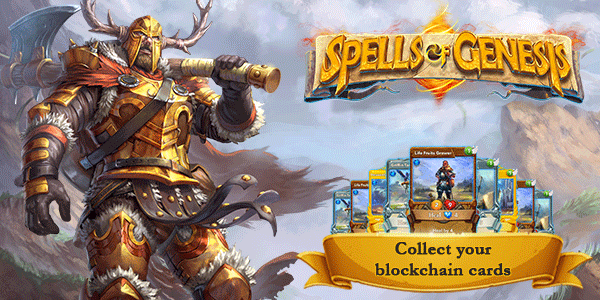
Now the OG blockchain game is in the midst of adapting to the gaming model that’s spreading like wildfire: play-to-earn. When Axie Infinity raked in over the 1 Billion in NFT Sales, it essentially transformed play-to-earn from the next-big-thing to a golden standard.
Now let’s explore how play-to-earn is transforming the Spells of Genesis ecosystem.
Spells of Genesis: A Trading Card Game Using Blockchain Collectibles
Developer EverdreamSoft has partnered with MakerDAO and joined The Dai Gaming Initiative. This collaboration enablesd gamers to earn dollar-pegged DAI tokens simply by playing Spells of Genesis.
The partners decided to roll out this project in phases, taking place over multiple months. Summer of last year, the team gave away more than 700 DAI. The best players earn digital cards that they can use in the game or as in-game gold by practice. The introduction of play-to-earn awarded players an additional 5-25 DAI during the months of July and August 2020.
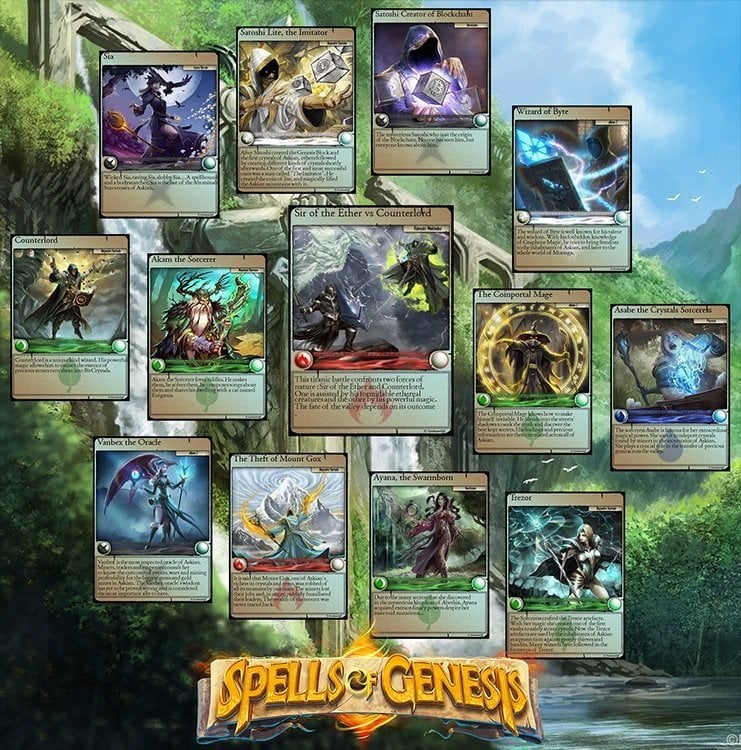
Spells of Genesis’ play-to-earn model rewards players with crypto that can be converted to cash in exchange for time spent on the game. In this case, money should not be seen as currencies, but as a value in particular. Players can exchange their earnings in DAI or cards for other valuables.
NFTs, Tokens and Play-to-Earn Mechanisms
Spells of Genesis discontinued Book of Orbs effective May 31 of this year as part of the pivot towards fully embracing play-to-earn. SoG redirected its active games to use alternatives for storing and sharing their collectibles.
In 2015 they issued one of the first tokenized collectibles that could be used in their game. Two years later, gamers could upgrade their in-game cards to ultimately mint them as a tokenized digital asset on the Bitcoin blockchain, using the Counterparty protocol.
On Counterparty, certain token collections became quite popular, like, for example, the Rare Pepe collection. Take note that all this happened quite sometime before the current ERC-721 NFT standard was introduced on the Ethereum blockchain. After a short hiatus, the developers decided to embrace the Ethereum blockchain.
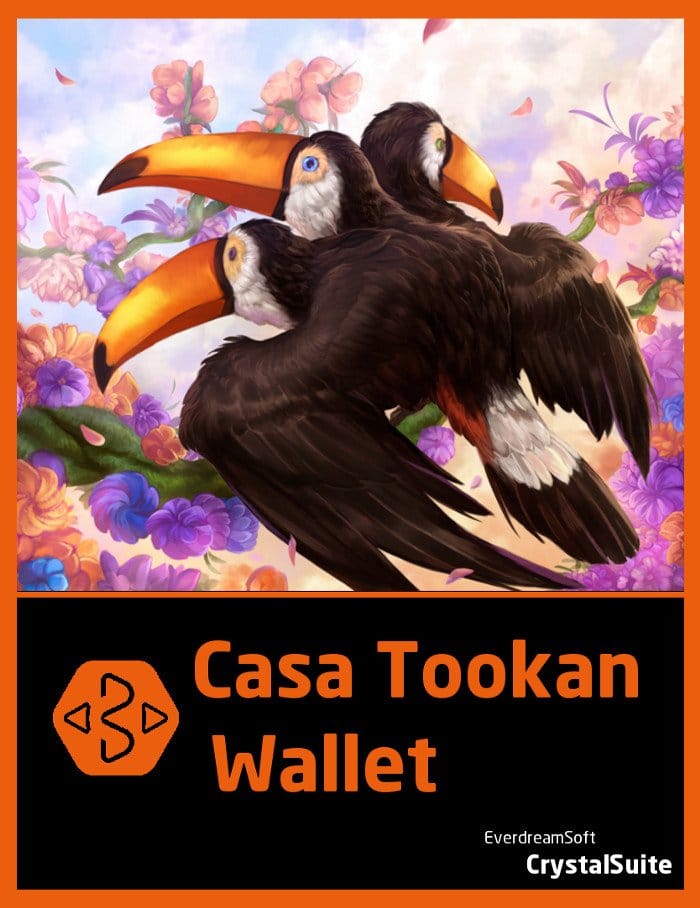
Since the Book of Orbs is no longer in the picture, players need to move their counterparty elsewhere. The top candidate is the Casa Tookan Wallet because it supports Bitcoin, Counterparty and Ethereum. Moreover, it is relatively easy to connect Spells of Genesis to it making it easy for players to use and send their cards freely.
Players can transfer their Books of Orbs account by using the passphrase in Casa Tookan. The step-by-step guide is available on Youtube.
April and May 2021 Development Update: Crystal NFT Collection
In its latest newsletter, EverdreamSoft that their focus is the upcoming “Everdreamsoft Crystal Collection.” In this collection, EDS retraces some of the most important events and projects from blockchain history, using original artworks initially created as part of the first blockchain tradable cards in SoG.
Everdreamsoft will mint a limited number of “prints” (1 to 15) as an NFT.
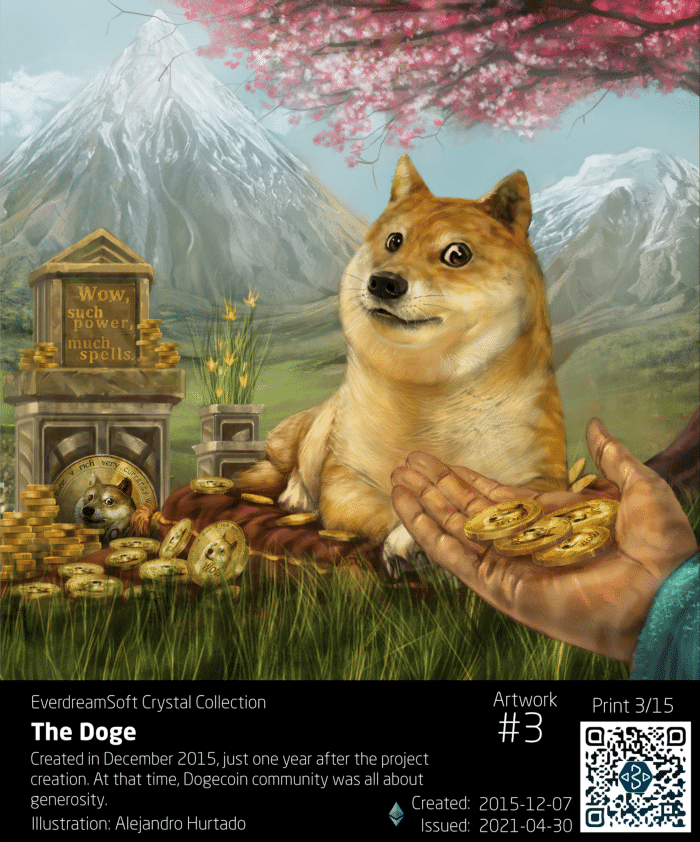
Aside from choosing the artworks, the team is finalizing the technical aspects. For example, setting up backend server, minting tokens and setting up APIS to ensure the proper display of Metadata.
The latest updates and announcements are available on EverdreamSoft’s blog site.
All investment/financial opinions expressed by NFTevening.com are not recommendations.
This article is educational material.
As always, make your own research prior to making any kind of investment.

